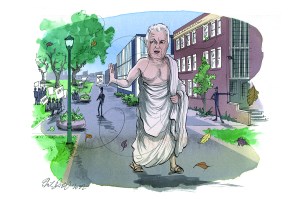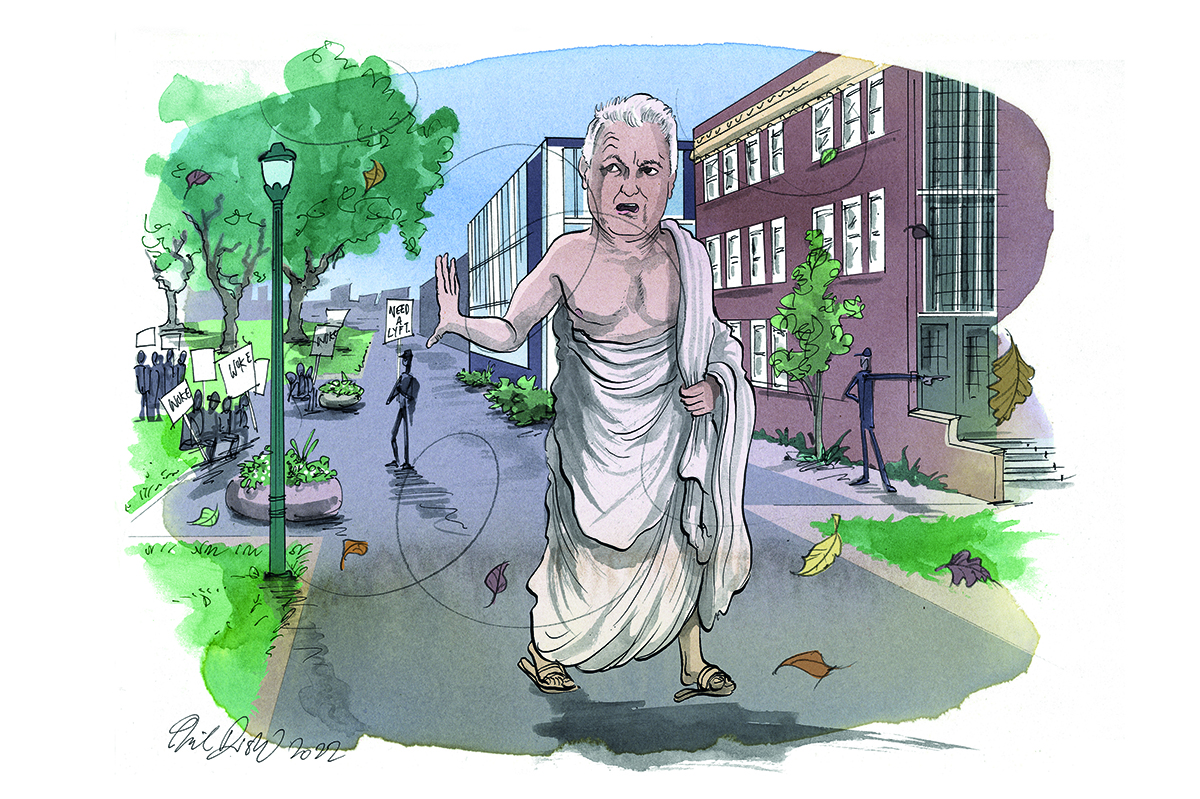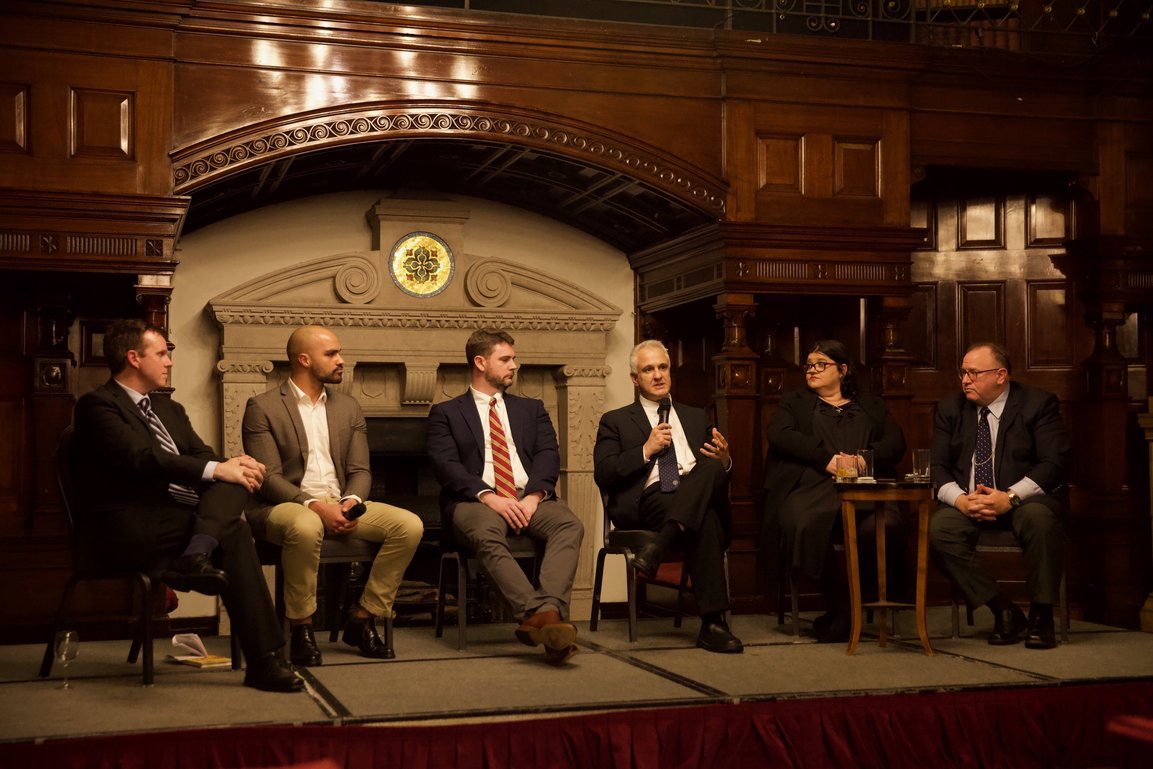What does flushing the toilet have to do with reducing political extremism? This isn’t a weird joke. There’s a bizarre connection here, studied by behavioral researchers. It relates understanding our ignorance to moderating extreme views.By way of entry, you have probably heard of the Dunning-Kruger effect, the phenomenon of incompetence that’s too incompetent to recognize itself. When people have very little exposure to a subject, their confidence in their own opinions about it becomes dramatically inflated. If, for example, a plane crashes in controversial circumstances, many people on Twitter magically become aeronautical engineers and air-traffic control ‘experts’ in about five minutes.Confidence in one’s opinions drops as a person begins to learn about the subject in earnest, and it stays relatively low, following a U-shaped path, until their level of expertise is genuinely high. The most confident voices in almost any discussion of complex topics — say, national security or health care issues — are the ignorant know-it-alls and the legitimate experts, and we all know which of these tend to be loudest. Depending on the media atmosphere in which the topic arises, this can polarize and degrade the public conversation, especially as it spreads across social media platforms. It can be genuinely difficult to tell a worked-up know-it-all from someone who possesses actual expertise. Meanwhile, we endlessly argue without making much headway, this person citing an expert, that one a crank, and both thinking their preferred sources are the real deal.In your everyday conversations, there’s an effective way to handle the problem of know-it-alls, and it relies upon understanding and using an effect related to Dunning’s and Kruger’s. We’ve nicknamed this ‘the Unread Library Effect’ (cognitive scientists refer to a similar phenomenon as ‘the illusion of explanatory depth’).This effect was discovered when researchers asked people to rate how confident they were in their ability to describe how a toilet works. Once subjects provided answers, experimenters had them write down as many details as they could in a short essay, and then they were again asked about their confidence. Their self-reported confidence dropped significantly after attempting to explain the inner workings of toilets.The Unread Library effect occurs when people think they know more about a topic than they do — just like those caught in the Dunning-Kruger effect. Because something is known by someone, people overestimate how well they know it themselves. For example, because it is known how toilets work, and because people feel familiar with toilets due to daily interactions, individuals grossly overestimate their own knowledge of the subject. That is, they know there’s a library of information out there explaining things — they just haven’t read it! Exposing the flimsiness of their knowledge is a simple matter of letting them discover it for themselves.In political discussions, you can make use of the Unread Library Effect when you suspect you’re talking to a know-it-all or someone misinformed by one. All you have to do is be straightforward about the issue in question — whether it’s gun control legislation, immigration policy, or China trade tariffs — and have them provide as many technical details as they can. How, exactly, does it work? How will change be implemented? Who will pay for it? What agencies will oversee it?Exposing the Unread Library Effect tends to moderate views, as most people know a lot less about their cherished beliefs than they think. People become less certain, question themselves more, and open their minds to new possibilities when they realize they know less than they thought they knew. To begin the process of helping people become more humble about their beliefs, all you need do is ask straightforward questions. Politely ask the person with whom you’re speaking to explain their belief clearly and in detail.On the flip side, maybe they are a genuine expert and they really do know what they think they know. In this case, you’re a winner. You’ll likely get a great (free) lesson.Peter Boghossian and James Lindsay are co-authors of How to Have Impossible Conversations (Da Capo Press).
Depending on the media atmosphere in which the topic arises, this can polarize and degrade the public conversation, especially as it spreads across social media platforms. It can be genuinely difficult to tell a worked-up know-it-all from someone who possesses actual expertise. Meanwhile, we endlessly argue without making much headway, this person citing an expert, that one a crank, and both thinking their preferred sources are the real deal.In your everyday conversations, there’s an effective way to handle the problem of know-it-alls, and it relies upon understanding and using an effect related to Dunning’s and Kruger’s. We’ve nicknamed this ‘the Unread Library Effect’ (cognitive scientists refer to a similar phenomenon as ‘the illusion of explanatory depth’).This effect was discovered when researchers asked people to rate how confident they were in their ability to describe how a toilet works. Once subjects provided answers, experimenters had them write down as many details as they could in a short essay, and then they were again asked about their confidence. Their self-reported confidence dropped significantly after attempting to explain the inner workings of toilets.The Unread Library effect occurs when people think they know more about a topic than they do — just like those caught in the Dunning-Kruger effect. Because something is known by someone, people overestimate how well they know it themselves. For example, because it is known how toilets work, and because people feel familiar with toilets due to daily interactions, individuals grossly overestimate their own knowledge of the subject. That is, they know there’s a library of information out there explaining things — they just haven’t read it! Exposing the flimsiness of their knowledge is a simple matter of letting them discover it for themselves.In political discussions, you can make use of the Unread Library Effect when you suspect you’re talking to a know-it-all or someone misinformed by one. All you have to do is be straightforward about the issue in question — whether it’s gun control legislation, immigration policy, or China trade tariffs — and have them provide as many technical details as they can. How, exactly, does it work? How will change be implemented? Who will pay for it? What agencies will oversee it?Exposing the Unread Library Effect tends to moderate views, as most people know a lot less about their cherished beliefs than they think. People become less certain, question themselves more, and open their minds to new possibilities when they realize they know less than they thought they knew. To begin the process of helping people become more humble about their beliefs, all you need do is ask straightforward questions. Politely ask the person with whom you’re speaking to explain their belief clearly and in detail.On the flip side, maybe they are a genuine expert and they really do know what they think they know. In this case, you’re a winner. You’ll likely get a great (free) lesson.Peter Boghossian and James Lindsay are co-authors of How to Have Impossible Conversations (Da Capo Press).
How to converse with know-it-alls
Exposing the Unread Library Effect

The Rose Main Reading Room at the New York Public Library
What does flushing the toilet have to do with reducing political extremism? This isn’t a weird joke. There’s a bizarre connection here, studied by behavioral researchers. It relates understanding our ignorance to moderating extreme views.By way of entry, you have probably heard of the Dunning-Kruger effect, the phenomenon of incompetence that’s too incompetent to recognize itself. When people have very little exposure to a subject, their confidence in their own opinions about it becomes dramatically inflated. If, for example, a plane crashes in controversial circumstances, many people on Twitter magically become aeronautical engineers and air-traffic control…
Comments
Share
Text
Text Size
Small
Medium
Large
Line Spacing
Small
Normal
Large





















